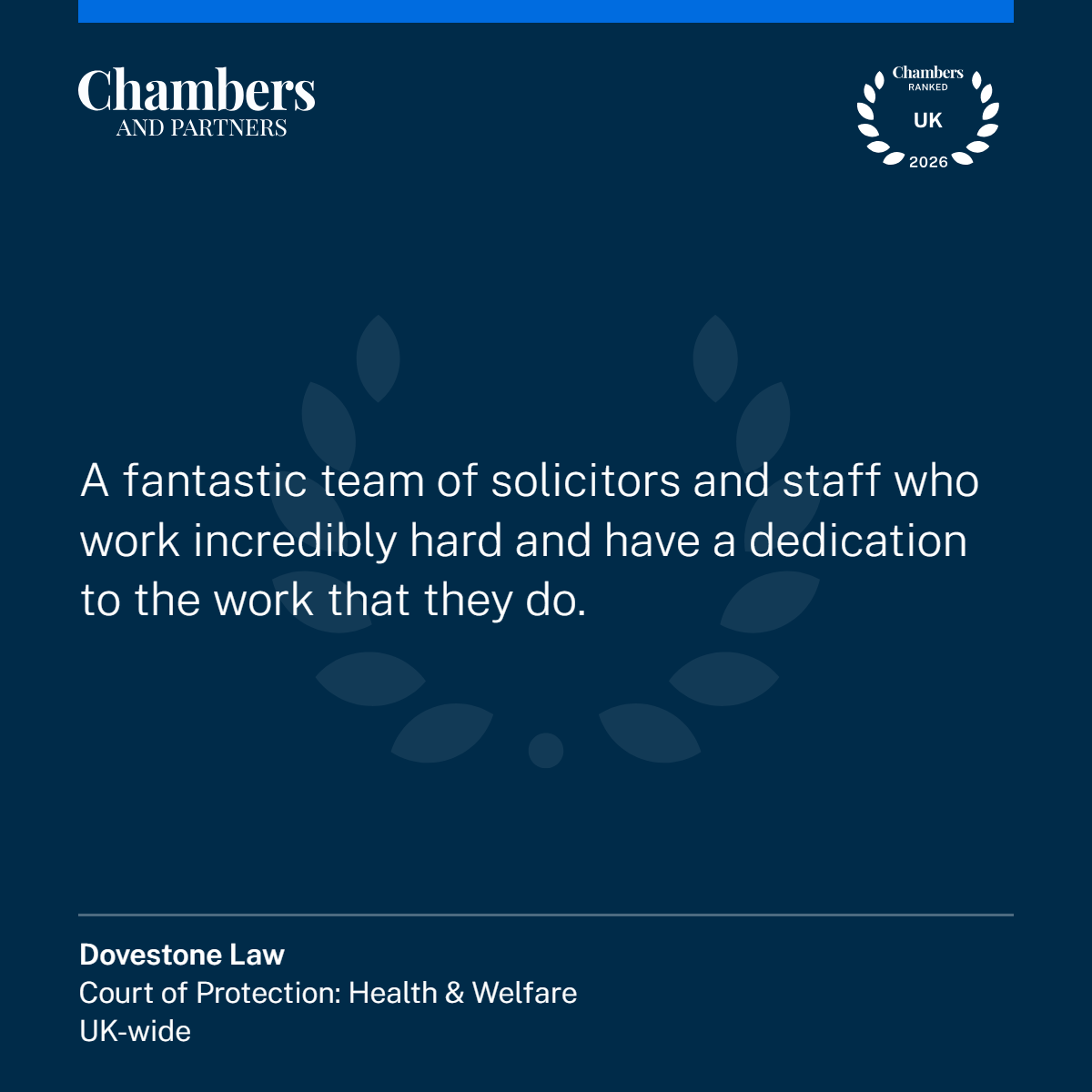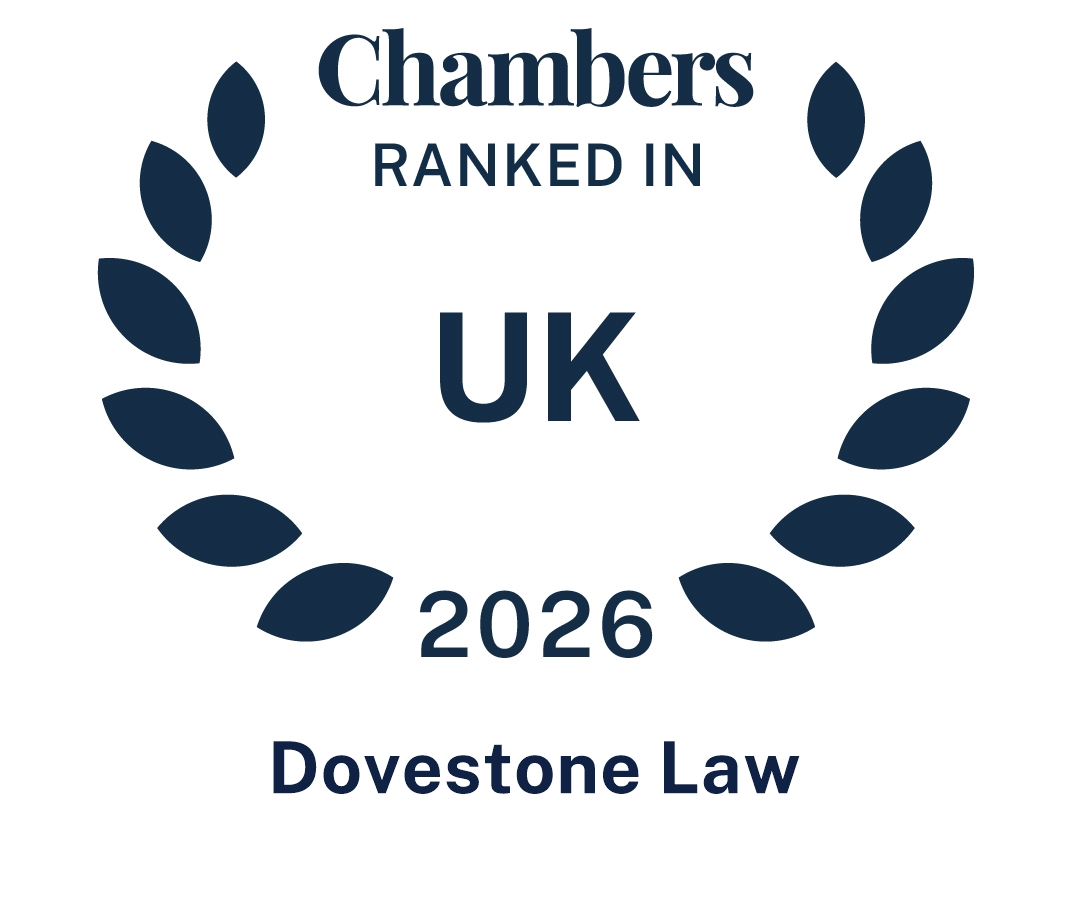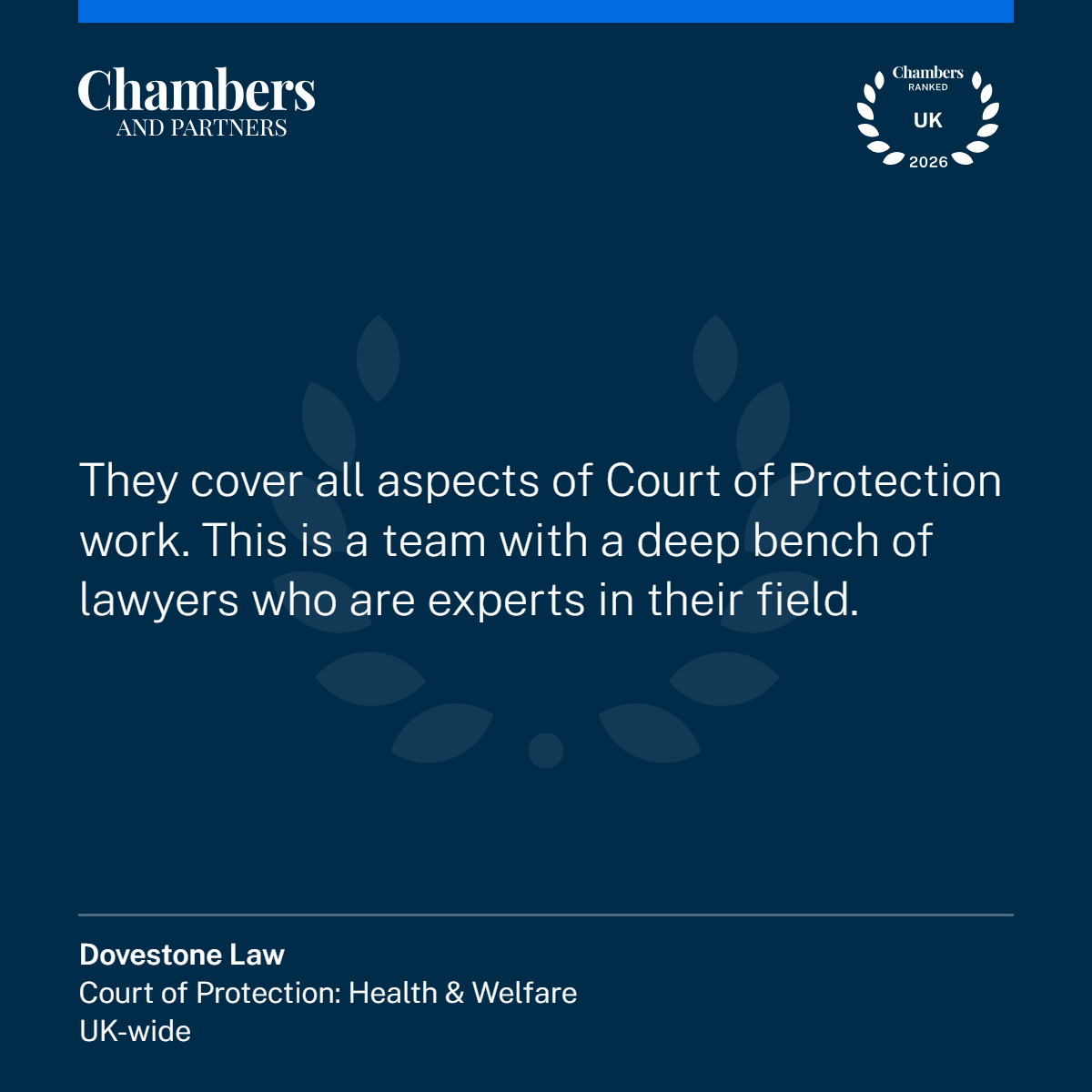The Mental Capacity Act 2005 is likely to touch the lives of many, because at some point, either you or someone you know may be assessed as lacking capacity to make a decision relating to everyday life.
A person must be assumed to have capacity unless it is established that the person lacks capacity. The question of whether someone has capacity is not always straightforward as issues are time and decision specific. For example, a person may have capacity to decide where they live but lack the capacity to make decisions regarding their care and treatment. Also, capacity can fluctuate.
Our experienced team consists of recognised experts, accredited legal representatives (ALR’s) under the Law Society’s Mental Capacity (Welfare) Accreditation Scheme. Our panel solicitors can be appointed in the confidence that members of our team are well placed to secure a vulnerable client’s participation in Court of Protection proceedings having the recognised level of expertise in Mental Capacity Law and experience of working with vulnerable individuals and their families to protect their best interests.
Prospective clients and those making referrals on their behalf can choose Dovestone Law in the knowledge that members of our team have proven knowledge of Court of Protection practice and procedure, an ability to consider the often conflicting needs of a vulnerable client and procedures in a practical and sensitive manner. We understand the particular sensitivities and vulnerabilities of clients, the scope for conflicts of interest within proceedings and the effect of the decisions in health and welfare matters. We welcome referrals from Independent Mental Capacity Advocates (IMCA’s) and paid relevant persons representative (RPR’s).





